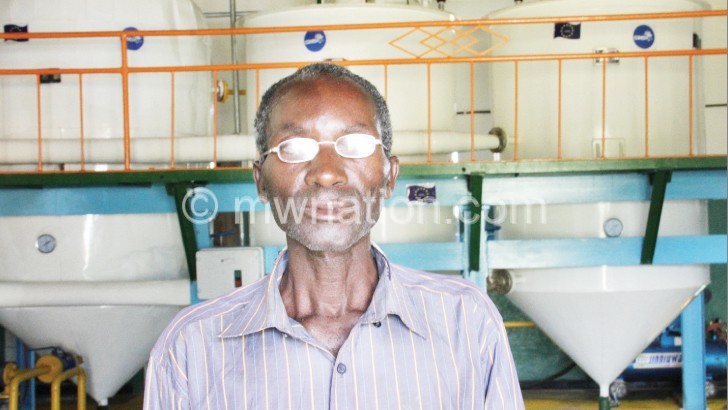Strengthening smallholder farmers’ businesses
In his late 50s, Fredrick Phauphau has eight children, three of which are working and taking care of themselves and the remaining five are still in his care.
The man from Muthuphwa Villiage, Traditional Authority (T/A) Nkhumba in Phalombe District owns about two to three hectares of land on which he grows chillies and sunflower, a venture he says has transformed his life.
“Until 2006, I did not know that farming could be this rewarding. Previously, I used to grow maize and other crops besides chillies and sunflower on my piece of land, but what did I get? Just a few bags of maize to feed my family and nothing left for me to support my family.
But today, Phauphau speaks praises to commercial farming business, saying days have become brighter thanks to National Smallholder Farmers Association of Malawi (Nasfam).

“My children were on the verge of dropping out of school but thank heavens, I was introduced to Nasfam. I took the opportunity on offer and get value for my long days in the field. I have educated my children from the same source of income and I am taking care of five others from the same source,” he says.
Phauphau says he finds dealing with Nasfam more rewarding than selling his produce to local vendors.
“Previously, I was selling my produce to vendors and I could not get anything more than K1 100 per kilogramme (kg) for chillies and K800 per kg for sunflower. But today, I get double this. For instance, last year, I sold my 320 kg of chillies at about K2 700 per kg and at about K1 200 per kg for sunflower which enabled me to realise about K550 000.
Nasfam, a farmer member controlled system, is organised into a unique extension to support its membership of around 170 000 smallholder farmers.
It focuses on ensuring the inclusion of the voice of the smallholder farmers in policy processes since the success of Nasfam interventions in this project relies on conducive agricultural operating environment, which is enabled by policies, processes and procedures that entice players in the sector to invest more.
In their small clubs made up of 10 to 15 people, farmers such as Phaupahu, with technical assistance from the Nasfam, are being helped to improve their livelihoods by promoting farming as a business to develop the commercial capacity of farmers.
Phauphau is just an example of many other rural farmers in Mulanje and Phalombe districts under Zikometso Smallholder Farmers Association, a member of Nasfam.
The farmers are taking advantage of the Nasfam to grow chillies and sunflower which is being processed to sunflower cooking oil and chilli sauce.
Zikometso Smallholder Farmers Association innovation productivity centre manager Benson Kuziona is happy that local farmers are benefiting from Nasfam and they adding value to their produce.
He says: “We have about 500 farmers under Zikometso with 3 000 under chillie farming and 2000 in sunflower farming. With the chillie, we are now adding value to make chilli sauce and with the sunflower, we now have a sunflower processing unit up and running producing sunflower oil.
“Assisted by the European Union [EU] through Farm Income Diversification Programme [Fidp] and Ministry of Industry, Trade and Tourism three years ago, we trained personnel to set up the factory and provide business and finance management skills to our personnel.”
Kuziona said farmers are now reaping from the venture and the gains are massive.
He said Nasfam will continue to help the farmers to find markets and business linkages for smallholder farmers.
Zikometso Smallholder Farmers Association is producing Zikometso Chilli Sauce which is certified by the Malawi Bureau of Standards (MBS) and is available in local supermarkets and Zikometso Sunflower Cooking Oil which is yet to be on the market.
Minister of Industry, Trade and Tourism Henry Mussa said recently that industrialisation plays a significant role in the development of any country; hence, industrialisation development and diversification is key to ensuring that African countries, including Malawi trade among themselves and benefit from free trade agreements. n





